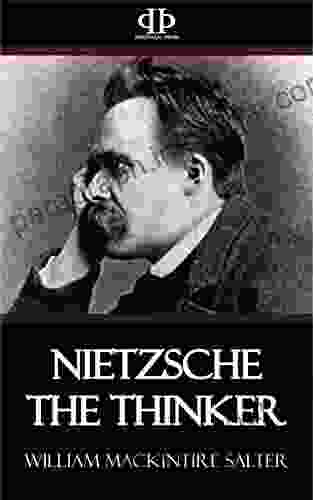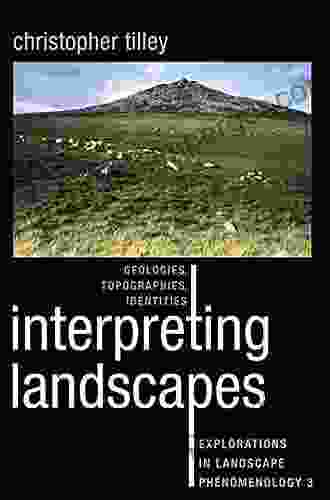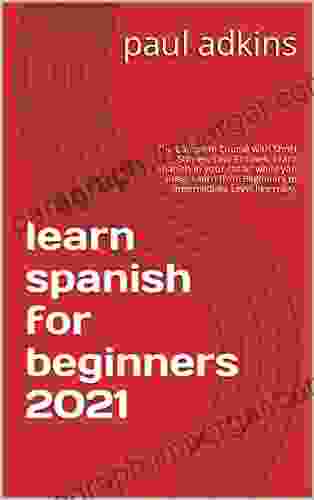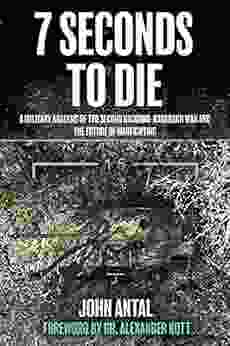Nietzsche: The Maverick Philosopher Who Defined Modern Thought

In the annals of philosophy, few figures loom as large as Friedrich Nietzsche. A towering intellect and a relentless provocateur, Nietzsche's ideas have left an indelible mark on our understanding of the human condition.
5 out of 5
| Language | : | English |
| File size | : | 1101 KB |
| Text-to-Speech | : | Enabled |
| Enhanced typesetting | : | Enabled |
| Word Wise | : | Enabled |
| Screen Reader | : | Supported |
| Print length | : | 390 pages |
The Early Years and Influences
Born on October 15, 1844, in Röcken, Germany, Nietzsche was a brilliant and precocious child. He excelled in his studies, particularly in philology and theology. However, his religious beliefs began to crumble during his time at the University of Leipzig, where he came into contact with the works of Arthur Schopenhauer and David Strauss.
The Birth of Tragedy
Nietzsche's first major work, The Birth of Tragedy (1872),was a controversial exploration of the origins of Greek tragedy. In this book, he argued that tragedy emerged from the interplay between the Dionysian (the instinctual, emotional, and irrational) and the Apollonian (the rational, Free Downloaded, and intellectual) forces within human nature.
The Assault on Traditional Morality
Nietzsche's subsequent works continued to challenge conventional wisdom and morality. In Beyond Good and Evil (1886),he attacked the Christian morality of altruism and compassion, arguing that it was a form of slave morality that suppressed individual freedom and creativity.
The Will to Power
At the heart of Nietzsche's philosophy was the concept of the "will to power." He believed that all human behavior was driven by the desire for power, not pleasure or happiness. This will to power, he argued, was not inherently good or evil but rather a fundamental aspect of human existence.
The Death of God
One of Nietzsche's most famous and provocative ideas was the "death of God." He proclaimed that the traditional Christian belief in a benevolent and all-powerful God was obsolete. In its place, he proposed a world without any inherent meaning or purpose.
The Eternal Recurrence
Another central tenet of Nietzsche's philosophy was the idea of the "eternal recurrence." He speculated that the universe was cyclical and that every moment would recur infinitely. This concept forced individuals to confront the consequences of their actions and to strive for a life of meaning and purpose.
The Übermensch
Nietzsche's ideal human was the "Übermensch" (Superman). The Übermensch was a radical departure from the traditional Christian ideal of humility and self-denial. Instead, Nietzsche envisioned a being who embraced their individuality, pursued their own desires, and overcame the limitations of conventional morality.
Legacy and Influence
Nietzsche's ideas have had a profound impact on philosophy, literature, and art. His challenge to traditional morality and his emphasis on individual freedom and self-assertion have inspired generations of thinkers and creators.
While Nietzsche's work has been praised for its brilliance and originality, it has also been criticized for its potential to be misinterpreted and used to justify harmful ideologies. Nevertheless, there is no doubt that Friedrich Nietzsche remains one of the most influential and enigmatic philosophers of the modern era.
Additional Resources
- Thus Spoke Zarathustra by Friedrich Nietzsche
- Beyond Good and Evil by Friedrich Nietzsche
- The Birth of Tragedy by Friedrich Nietzsche
- Friedrich Nietzsche - Encyclopedia Britannica
- Friedrich Nietzsche - Internet Encyclopedia of Philosophy
5 out of 5
| Language | : | English |
| File size | : | 1101 KB |
| Text-to-Speech | : | Enabled |
| Enhanced typesetting | : | Enabled |
| Word Wise | : | Enabled |
| Screen Reader | : | Supported |
| Print length | : | 390 pages |
Do you want to contribute by writing guest posts on this blog?
Please contact us and send us a resume of previous articles that you have written.
 Book
Book Novel
Novel Page
Page Chapter
Chapter Text
Text Story
Story Genre
Genre Reader
Reader Library
Library Paperback
Paperback E-book
E-book Magazine
Magazine Newspaper
Newspaper Paragraph
Paragraph Sentence
Sentence Bookmark
Bookmark Shelf
Shelf Glossary
Glossary Bibliography
Bibliography Foreword
Foreword Preface
Preface Synopsis
Synopsis Annotation
Annotation Footnote
Footnote Manuscript
Manuscript Scroll
Scroll Codex
Codex Tome
Tome Bestseller
Bestseller Classics
Classics Library card
Library card Narrative
Narrative Biography
Biography Autobiography
Autobiography Memoir
Memoir Reference
Reference Encyclopedia
Encyclopedia Joanne Randa Nucho
Joanne Randa Nucho Jim Corbett
Jim Corbett Jennifer Ford Berry
Jennifer Ford Berry Jo Usmar
Jo Usmar Jeremy Leblanc
Jeremy Leblanc Jimmy Maher
Jimmy Maher Jens Volker Kratz
Jens Volker Kratz Jim White
Jim White Joan Wheelis
Joan Wheelis Joe Dixon
Joe Dixon John Baldoni
John Baldoni Jeffrey M Schwartz
Jeffrey M Schwartz Jodi Dean
Jodi Dean Jim Cox
Jim Cox John C Gibbs
John C Gibbs Jeremy R Kinney
Jeremy R Kinney Jody Comins
Jody Comins Jessica Jackson
Jessica Jackson Jim Peterik
Jim Peterik Jeffrey L Green
Jeffrey L Green
Light bulbAdvertise smarter! Our strategic ad space ensures maximum exposure. Reserve your spot today!
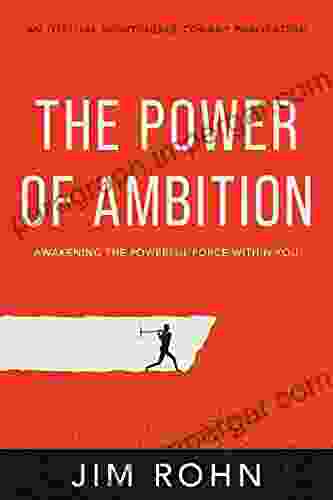
 Juan RulfoAwaken the Powerful Force Within You: An Empowering Journey with Nightingale...
Juan RulfoAwaken the Powerful Force Within You: An Empowering Journey with Nightingale... Rubén DaríoFollow ·18.2k
Rubén DaríoFollow ·18.2k Jake CarterFollow ·4.3k
Jake CarterFollow ·4.3k Jake PowellFollow ·12.6k
Jake PowellFollow ·12.6k Dion ReedFollow ·12.7k
Dion ReedFollow ·12.7k Henry HayesFollow ·9.8k
Henry HayesFollow ·9.8k Milan KunderaFollow ·15.6k
Milan KunderaFollow ·15.6k Brian WestFollow ·7.2k
Brian WestFollow ·7.2k Jaime MitchellFollow ·9.9k
Jaime MitchellFollow ·9.9k

 Christian Barnes
Christian BarnesUnleash Your Creativity: Build Interlocking 3D Animal and...
Discover the Art of Paper...

 Terry Bell
Terry BellUnveiling the Secrets of Winning: A Comprehensive Guide...
In the realm of chance and fortune, the...

 Albert Camus
Albert Camus101 Things That You Should Do Before Leaving The House In...
Starting your day right is...
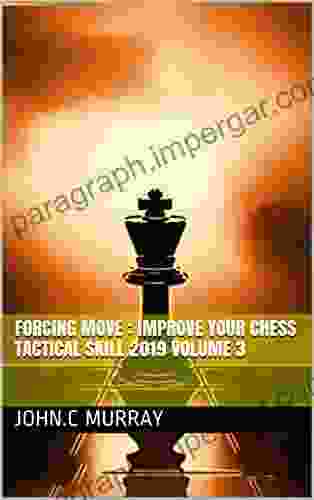
 Anthony Burgess
Anthony BurgessForcing Move 2024 Volume: Unleash Your Inner Grandmaster
Embark on an extraordinary chess...
5 out of 5
| Language | : | English |
| File size | : | 1101 KB |
| Text-to-Speech | : | Enabled |
| Enhanced typesetting | : | Enabled |
| Word Wise | : | Enabled |
| Screen Reader | : | Supported |
| Print length | : | 390 pages |


